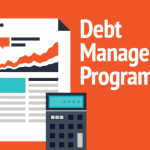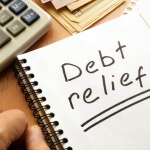Understanding and managing your credit health is a significant aspect of personal finance in today’s modern world. It impacts various aspects of life, including the ability to secure loans, buy a home, or even land certain jobs. However, sometimes, due to lack of awareness or unfortunate circumstances, individuals may find themselves on a path to credit ruin. This comprehensive article aims to highlight three crucial signs that indicate deteriorating credit health and elucidates how CreditGUARD, a highly reputed nonprofit credit counseling agency, can play a pivotal role in repairing and rebuilding it.
The Importance of Credit Health and How CreditGUARD Can Assist
Good credit health serves as a cornerstone of your financial stability. It isn’t merely a factor for consideration when applying for loans or credit cards. It is a comprehensive representation of your financial responsibility that various institutions, including banks, insurance companies, landlords, and even some employers, consider.
A low credit score, often a result of poor credit health, can lead to an array of financial implications. Higher interest rates on loans and credit cards, reduced chances of loan approval, and unfavorable insurance premiums are some of the potential repercussions. Over the course of your lifetime, these seemingly minor inconveniences can aggregate into a significant financial burden.
Understanding the complexities associated with credit health, CreditGUARD offers a comprehensive suite of services designed to help individuals navigate the world of credit. With a wide array of resources, including individualized budgeting assistance, comprehensive debt management plans, and expert credit counseling, CreditGUARD aims to empower individuals to regain control over their financial health and work towards a better credit future.
Late or Missed Payments: A Red Flag for Credit Trouble
The Significance of Payment History and Credit Scores
Payment history holds the highest weightage, about 35%, in the calculation of your FICO credit score. This percentage signifies the extent to which potential lenders view your past payment behavior as a reliable indicator of your future payment performance. Timely payment of bills reflects positively on your credit report, bolstering your credibility as a borrower and enhancing your chances of loan approval.
Consequences of Late or Missed Payments on Your Credit
However, late or missed payments can severely damage your credit score. A single late payment can cause a significant dip in an otherwise excellent score—potentially by over a hundred points. The situation worsens with subsequent late payments, leading to a rapid downward spiral of your credit health. The repercussions are long-lasting too, with this negative information staying on your credit report for up to seven years.
CreditGUARD’s Solutions: Budgeting Assistance and Debt Management Plans
To counteract the detrimental effects of late or missed payments, CreditGUARD offers practical solutions in the form of budgeting assistance and debt management plans. By working closely with you, their expert advisors help you formulate realistic budgets that align with your lifestyle, ensuring you have sufficient funds to meet all your bill payments promptly. Additionally, their debt management plans consolidate multiple payments into one easy-to-manage monthly payment, making it less likely for you to miss a payment due to the chaos of managing multiple debts.
High Credit Utilization: Avoiding the Debt Trap
Understanding Credit Utilization and Its Impact on Credit Scores
Credit utilization—calculated as the percentage of your available credit that you’re using—has a significant impact on your credit score, accounting for about 30% of your FICO score. A lower credit utilization ratio is perceived favorably, indicating that you’re using your credit responsibly and not maxing out your credit limits.
The Negative Effects of High Credit Utilization
Unfortunately, maintaining a high credit utilization ratio can have a severely damaging effect on your credit score. It’s a red flag to lenders that you’re heavily dependent on borrowed money, thus categorizing you as a high-risk borrower. This perception can lead to difficulty in securing loans, unfavorable loan terms, and higher interest rates.
CreditGUARD’s Strategies: Debt Consolidation and Responsible Credit Card Use
To mitigate the effects of high credit utilization, CreditGUARD offers comprehensive debt consolidation services. By consolidating your multiple debts into a single, manageable monthly payment, you can better control your finances and possibly secure a lower interest rate, thereby reducing your credit utilization ratio. Additionally, CreditGUARD’s credit counselors can provide valuable insights on responsible credit card use, empowering you to manage your credit card balances efficiently.
Maxed Out Credit Cards: Breaking Free from Financial Strain
The Dangers of Maxed Out Credit Cards
Maxing out your credit cards is a serious sign of deteriorating credit health. Besides the evident increase in your credit utilization ratio, it may also lead to penalties from your credit card issuer, higher interest rates, and a significant decrease in your credit score.
How Maxed Out Credit Cards Affect Your Creditworthiness
When potential lenders see maxed out credit cards, they interpret it as a clear indication of financial stress and poor money management. It gives the impression that you’re living on borrowed money, which seriously hampers your creditworthiness. This perception can make it extremely challenging to secure future loans or negotiate favorable interest rates.
CreditGUARD’s Assistance: Strategies to Reduce Credit Card Debt and Credit Counseling
To assist individuals struggling with maxed out credit cards, CreditGUARD offers targeted strategies to reduce credit card debt. Their counselors provide tailored advice to help manage your existing debt and offer practical steps to avoid maxing out your credit cards in the future. CreditGUARD’s credit counseling services aim to promote better financial habits and strategies, ensuring long-term credit health and financial stability.
Conclusion: Proactive Credit Management for a Brighter Financial Future
Late or missed payments, high credit utilization, and maxed-out credit cards are the three main signs that your credit health may be in jeopardy. Recognizing these signs early and proactively addressing these issues can pave the way for a secure financial future.
With CreditGUARD, you can navigate the path to credit repair and rebuilding with confidence. Their expert assistance, pragmatic solutions, and educational resources can empower you to regain financial stability and enjoy the benefits of a robust credit health. Trust in CreditGUARD’s guidance as your partner in the journey towards better credit.


